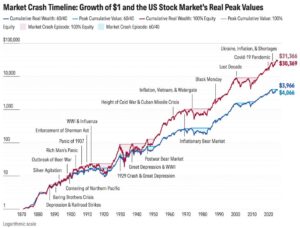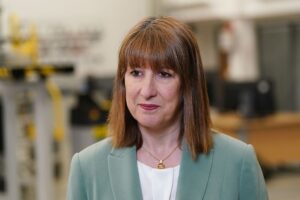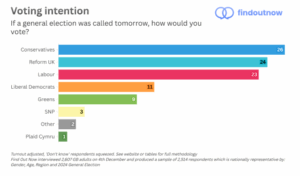By Enrico Sanna (pictured), CEO Platforms, Arrow Global
When I speak with institutional investors looking to deploy capital into European mid-market real estate and private credit, I am often asked a very fair question: why has Arrow built such a broad, vertically integrated business? Why do we need 24 operating companies and over 4,400 people across eight countries? Does this not make us operationally heavy in a world that prizes lean, asset-light models?
My answer is simple. We did not build this business because it was easy, we built it because it was necessary. Europe is not one market; it is 44. Each country has its own regulatory regime, banking system, tax and insolvency laws, language, and culture.
For investors used to the scale and uniformity of the US, the European landscape can seem highly fragmented. But for Arrow, that fragmentation is precisely where the opportunity lies. Europe’s private credit markets are fundamentally local: 82 per cent of Eurozone lending remains domestic, and around €14tn (£11.9tn) in middle-market, asset-backed exposures are deeply embedded within national systems. These are profoundly local opportunities that cannot be efficiently securitised or outsourced. By controlling the ‘last mile’ of lending, whether it’s bridging loans in the UK or residential development in Spain, Arrow converts this structural complexity into sustained alpha. Our business exists to turn complexity into competitive advantage, to transform local presence into proprietary access, and to control risk and retain maximum value by remaining directly engaged at every stage of the investment lifecycle, not by outsourcing or distancing ourselves through layers of intermediaries.
From the beginning, Arrow was designed to operate within this fragmented complexity. We saw the most attractive investments, those with the greatest asymmetry between risk and return, were often small, non-core, or distressed assets sitting below the radar of large institutions. These deals do not appear in broker-led auctions or pan-European portfolios. They are found in local insolvency proceedings, in long-standing relationships with banks and servicers, in regional developer platforms, and in legacy situations that require patience, credibility, and cultural understanding to unlock. And they are rarely more than €20m to €50m in size, far too small for global capital pools, but exactly the kind of granular investment that, if managed correctly, can drive strong returns that are largely uncorrelated with broader market cycles. Thanks to this embedded network, we are consistently able to source and execute transactions in the €20m to €30m range, typically too small for institutional capital and in the majority of cases entirely off-market.
Read more: Arrow Global Germany buys Ziegert Group assets
To find and execute these deals, you need to be local. That is why we built our business the way we did. Each of our local platforms, from Maslow in the UK and Zenith in Italy, to Norfin in Portugal, Galata and Amitra in Spain, iQera in France, Mars in Ireland, and Interboden in Germany, plays a strategic role. These are not bolt-on subsidiaries. They are integrated engines of origination, underwriting, servicing, and asset management. They bring us real-time intelligence, privileged deal flow, and deep market knowledge that no centralised team sitting in London or New York could replicate. And importantly, they have been brought into the Arrow family through long-term partnerships and joint ventures, not opportunistic rollups. This ensures cultural alignment, continuity, and trust.
The value of this structure becomes clearest in times of dislocation. In Germany, for example, we recently acquired Interboden, a respected long-established, family-owned development business that had entered insolvency. But we did not just acquire the assets. We took on the entire operating platform: the employees, the relationships, the know-how. That acquisition added over €500m in GDV to our pipeline and firmly established our presence in a market where the current opportunity set is defined not by large-scale distress, but by granular, misaligned capital structures that need hands-on resolution. Without a local platform like Interboden, we would not have had the visibility or execution capability to act with such speed and confidence.
What makes Arrow’s model even more powerful is that we do not just source or acquire assets, we closely manage them through their full lifecycle. That requires operational control, which we maintain through our network of specialised platforms. We own master and special servicers like Arrow Global Massey in the UK, Zenith in Italy, and Galata in Spain. We have a credit bureau in the Netherlands, Focum, and a securitisation vehicle in Portugal, Hefesto. We manage legal processes through Drydens Solicitors in the UK, and we operate extensive real estate and hospitality assets through platforms like Sansedoni in Italy and Details in Portugal. These are not just support functions. They are essential parts of our ability to price risk accurately, manage complexity, and execute business plans with precision.

When we underwrite a transaction, we do not just look at market comparables and broker forecasts. We use real performance data drawn from our servicing operations, covering more than 35 million loans and assets across our portfolio. We validate our assumptions through conversations with in-market professionals who understand pricing trends, legal developments, borrower behaviour, and policy shifts. And when we execute, we can mobilise local teams to reposition assets, implement ESG upgrades, restructure leases, and actively manage capital expenditure. This is how we transform underperforming or stranded assets into high-performing, exit-ready investments.
Of course, running a platform of this size and complexity takes careful coordination. That is where the interaction between our local and central teams becomes essential. Our local businesses operate with significant autonomy, but they are fully aligned to Arrow’s central investment and risk framework. The local teams bring us market perspective, origination leads, and operational insight. The central team in London handles portfolio construction, fund strategy, capital deployment, and risk management. We collaborate closely to vet opportunities, calibrate underwriting, and shape asset strategies. It is a loop, not a hierarchy. And that dynamic is what allows us to be both agile and disciplined at the same time. Because our platforms operate across eight Western European countries, we can dynamically adjust our focus to best suit prevailing conditions, currently pursuing structured, downside-protected positions in more conservative Northern jurisdictions while leaning into growth and recovery themes in the South.
Read more: Arrow Global aims to raise €4bn with latest opportunistic credit fund
This structure also gives us the flexibility to adapt our capital strategy. We hold our platforms on balance sheet, which means we can retain them when they are strategically aligned or divest selectively when they no longer fit our focus. In 2023, for example, we exited Capquest and Mars UK, businesses that were no longer core to our preference for asset-backed, mid-market assets. That level of strategic optionality is an advantage few asset managers have.
For institutional investors evaluating the European market today, the next cycle of outperformance is unlikely to come from scale alone. It will be driven by granularity, local insight, and disciplined execution. This is not a market for passive capital or remote decision-making. It is a market for operators, those prepared to engage with complexity on the ground and create value asset by asset, market by market.
Arrow has built the infrastructure to deliver this. Our platform is weather-tested, our teams are in place, and our pipeline is strong. For institutional capital seeking access to Europe’s granular and underpenetrated asset-backed mid-market – across origination, asset management, and execution – we are already delivering results. In 2024, we invested €2.1bn and achieved €1.2bn in realisations, demonstrating both the depth of our opportunity set and the discipline of our exit execution. With €11bn in FUM and €112bn total AUM, both growing, our platform is positioned at scale and supported by a robust pipeline heading into 2025.
Read more: Arrow Global reports record origination as funds under management hit €10.5bn
Importantly, this approach aligns powerfully with the structural tailwinds currently driving demand for private credit. Traditional banks have stepped back significantly from mid-market lending across Europe, constrained by balance sheet pressures, heightened capital provisioning requirements, and the operational complexity of managing granular, cross-border exposures. Into that gap, private credit has moved with increasing momentum. The asset class continues to offer strong, risk-adjusted returns, while providing downside protection through senior positioning in the capital structure. Investors are increasingly drawn to the predictability of outcomes, the regularity of interest payments, and the ability to match portfolios to long-term objectives. Add to that the diversity of strategies across the risk spectrum and the agility enabled by shorter fund durations, and private credit is emerging not just as a complement to private equity, but as a cornerstone allocation.
The unique makeup of our business, combining origination engines, servicing infrastructure, and asset-level execution across multiple jurisdictions, is purpose-built to capture these dynamics. At Arrow, we are not just active in the private credit opportunity, we are structurally positioned to lead within it.




